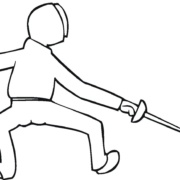Difference between Original Creditors and Debt Collectors
Debt Collector or Original Creditor
For a free copy of this article in pdf format, click here: difference between original creditors and debt collectors
We used to face a simple either/or question in debt defense. Were you being harassed or sued by the original creditor? That’s the person who allegedly lent you the money in the first place. If so, you were dealing with a person who had better rights against you – but some concerns over public perception that could help you. If it was a “debt collector” who had bought the debt from someone else and had nothing else to do with you, you had better rights and a better chance of winning.
Various things have blurred the line somewhat, but it is still worth keeping the distinctions in mind. There are now really three important categories to consider: original creditors, debt buyers, and “debt collectors,” and the last two categories overlap to some extent.
How Debt Arises
Debt can arise in a number of ways. If you buy a club membership, for example, and then stop paying on it, the club is the original creditor. If you stop paying, the club will bug you for a while, and then they may send the account to a debt collector to bug you some more. Eventually, they may sue you or sell the debt to another company. Whatever they do directly to you, however, they must worry about their reputation in the community, and harsh collections might reduce their sales.
This concern, that they needed to have – about reputation, was considered a check on their debt collection practices. The legislature thought that was enough protection against the worst abuses.
Debt Collectors
Debt collectors, by contrast, lack that relationship with the consumer. Their only client is the creditor company or, if they have purchased the debt for themselves, their only loyalty is to their own bottom line. Thus that protection from abusive collection practices was not there, and the FDCPA was designed to put it there.
The emphasis was on how the debt originated and how it came into the possession of the person bugging you. Thus for a long time we simply considered anyone who bought debts as a “debt collector.” Such people or companies had no need to protect their relationship with the public, and so the public needed protection from them.
Supreme Court
The Supreme Court has made things a little tougher for debt defendants by holding that debt buyers are not, by that fact alone, now defined as “debt collectors” under the Fair Debt Collection Practices Act. Legally, a company can be a “debt collector” under the FDCPA if its “principle business” is the collection of debts. But otherwise a debt buyer isn’t necessarily a debt collector.
This will protect some very bad people from consequences for some of their actions, and it will prevent many people from being able to get lawyers to protect themselves from debt lawsuits.
It will also complicate the way you handle your lawsuit against someone who may be a debt collector, since you will have to try to prove the company bugging or suing you is a debt collector. We have changed our model discovery to address that new reality, and if you’re being sued, you will need to take it into account.
New Reality
Unfortunate as the Supreme Court decision was, it’s now the law until and unless it gets changed. In the current political climate, that seems unlikely. So you must bear in mind some practical distinctions.
Debt buyers, whether or not they are “debt collectors” under the FDCPA, will have difficulty getting or using certain evidence in court. The distinction is very important in assessing your defenses against a lawsuit for debt. Debt buyers will likely face major hurdles from the hearsay law, and they won’t have the same records as an original creditor.
You will have more and easier counterclaims against those who are defined as “debt collectors” under the law, but you will need to conduct discovery specifically to prove that they are, in fact, debt collectors.
Original creditors will probably have fewer issues with hearsay and may or may not have many records. They seem to have fewer records and less control over their files than they used to, for whatever reason, so you will need to explore this in your discovery and defense strategy. And you will have a better chance defending against an original creditor than used to be the case.
Difficulty of Defense
It is not more difficult to defend yourself from one group than another. The legal process itself is basically the same. You have to do all the same things to defend yourself, from answering the petition to showing up in court, responding to discovery, and going to trial if necessary. But the content of the discovery as well as the process of the suit, will likely be different. The original creditors will be more reluctant to sue you, but will have more materials to support the suit. The debt buyers will be more willing to sue, but have less material to support their claim, and if you can prove the other side is a debt collector, you’ll probably have a counterclaim.
Whichever you’re facing, you should defend yourself. We suggest our materials and membership if you’re ready to do that on your own.
Your Legal Leg Up
Your Legal Leg Up is a website and business dedicated to helping people defend themselves from debt lawsuits without having to hire a lawyer. As you can see below, we have a number of products as well as memberships that should help you wherever you are in the process. In addition to that, our website is a resource for all. Many of the articles and materials are reserved for members, but many are available to everyone.
Finding Resources
Our website is both a business and a public resource, and you can use it to find information on a wide variety of debt law-related topics. While many of our resources are restricted to members, of course, many more are free to the public. Please feel free to use it. Every page has a site search button in both the header and footer. It’s a little magnifying glass icon that looks like this:

Click on the magnifying glass icon, and a small window opens. Put in a key word – a word you think relates to what you’re looking for – and enter. You will get a page of results.





